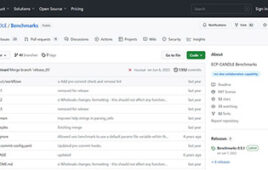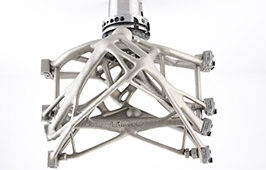![]() Many scientific and commercial systems require many constituent Application-Specific Integrated Circuits (ASICs), but practical considerations require that these ASICs be addressed through a small number of external connections. Current approaches to this challenge are not resilient against failures of their constituent ASICs. If the DUNE Near Detector were to use a non-resilient technology to connect the ASICs, then the failure of a single ASIC could lead to the loss of thousands of sensor channels, which would harm the experiment and the scientific results. To address this critical need, Hydra I/O, a reconfigurable software-defined network topology and communication system, was developed by Lawrence Berkeley National Laboratory. Hydra enables reliable, scalable interconnection of large numbers of ASICs in a way that is resilient to single-chip failures when system repair or replacement is impossible or impractical. Hydra creates a robust and scalable ad-hoc network that offers long-term reliability at low complexity, even with failures of individual nodes of the network. It is an enabling technology for the DUNE Near Detector with applicability across many systems that require high reliability without physical intervention.
Many scientific and commercial systems require many constituent Application-Specific Integrated Circuits (ASICs), but practical considerations require that these ASICs be addressed through a small number of external connections. Current approaches to this challenge are not resilient against failures of their constituent ASICs. If the DUNE Near Detector were to use a non-resilient technology to connect the ASICs, then the failure of a single ASIC could lead to the loss of thousands of sensor channels, which would harm the experiment and the scientific results. To address this critical need, Hydra I/O, a reconfigurable software-defined network topology and communication system, was developed by Lawrence Berkeley National Laboratory. Hydra enables reliable, scalable interconnection of large numbers of ASICs in a way that is resilient to single-chip failures when system repair or replacement is impossible or impractical. Hydra creates a robust and scalable ad-hoc network that offers long-term reliability at low complexity, even with failures of individual nodes of the network. It is an enabling technology for the DUNE Near Detector with applicability across many systems that require high reliability without physical intervention.





Tell Us What You Think!